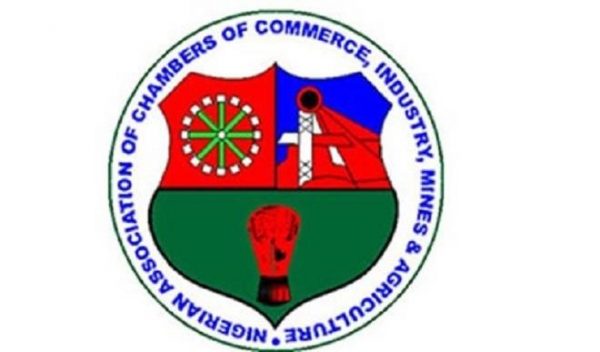The Nigerian Association of Chambers of Commerce, Industry, Mines, and Agriculture (NACCIMA) has raised the alarm over the impending effect of the global tariff war on the economy of Nigeria.
The President of NACCIMA, Dele Oye, raised the alarm at the Vanguard Economic Discourse 2025, where he served as Chairman.
At the event held in Lagos last week with the theme: “Nigeria’s Economic Outlook 2025: Hardship and Pathways to Sustainable Recovery,” Oye said: “In this pivotal moment, we must recognise and confront the significant challenges before us—challenges that have been magnified by the advent of America’s ‘America First’ policy.
“This paradigm shift in global trade, driven by protectionism and tariffs, presents a unique and formidable array of obstacles for developing nations such as ours.
“The world we once knew, one characterised by cooperative, rules-based trading systems under the World Trade Organization, has given way to an environment fraught with uncertainty.
“This transformation not only disrupts global markets and supply chains, but poses an acute threat to our competitive standing in international trade.
“The recent implementation of a 14 percent tariff on Nigerian exports to the United States directly jeopardises what has historically been a critical market for our key goods, including crude oil, liquefied natural gas, and agricultural products.
“The ripple effects of reduced demand could precipitate job losses, economic instability, and a decline in vital foreign exchange inflows, particularly for our non-oil sectors.
“Indeed, the ramifications of current US policies go beyond tariffs.
“We are witnessing a significant decrease in funding for initiatives that empower Africa’s burgeoning start-ups.
“The $51 million cut from the United States Development Fund, which affects countries like Nigeria and Kenya, exemplifies the broader challenges we face.
“The grants previously allotted to our SMEs are critical for nurturing innovation and entrepreneurship within our local economies.
“We need a political structure that can withstand external pressures and remain resilient in the face of global shifts.
“We must deepen our engagement with the African Continental Free Trade Area (AfCFTA) to encourage intra-African trade and bolster regional supply chains.
“Together, we can create a more integrated and prosperous African market.
“It is imperative that we expand our trade partnerships beyond traditional markets, forging relationships with emerging economies such as China, India, and Brazil.
“Diversification is our shield against over-reliance.
“Strategic investment in our transport and logistics infrastructure is essential to improving market accessibility and attracting foreign direct investment, paving the way for growth.
“We need to promote and insulate our special economic zones from municipal agencies’ regulatory uncertainties, towards promoting their global competitiveness.
“We must nurture sectors like agriculture and technology by promoting value addition in our products, which will drive industrialisation, create jobs, and multiply returns on our exports.
Also Read
- Shettima extols UBA’s dedication to innovation, emerging markets
- Breaking: CBEX: EFCC declares eight foreigners, Nigerians wanted
- Leakage of National Assembly roof confirmed during downpour
- Rivers: Ex-Deputy Speaker prays court to sack Sole Administrator
- ‘C & S Church’ with human parts uncovered, three arrested
“One of our biggest problems is that we still export our raw materials
“It is not only about doubling exports but to increase local processing so that we can deepen technology transfer and most importantly, also create jobs
“Enhancing our regulatory frameworks and streamlining processes will render Nigeria a more appealing destination for investment.
“We should invest in our greatest asset—our people—by emphasising vocational training and education to cultivate a skilled workforce ready to meet the demands of future industries.
“Nigeria should establish an environment that nurtures tech start-ups and promotes research to drive sustainable economic growth.”


